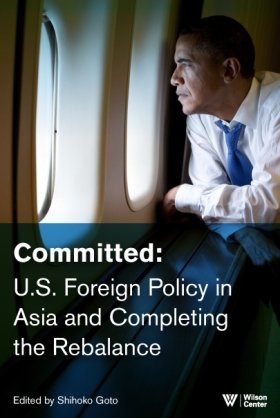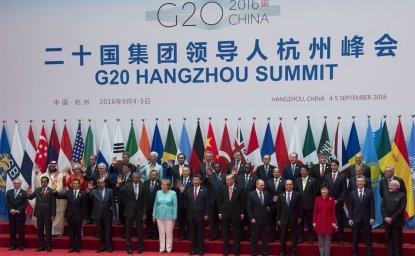Committed: U.S. Foreign Policy in Asia and Completing the Rebalance





The United States is a Pacific power. It may be so reluctantly, but its continued military, political, and economic engagement has been key to Asia’s stability and prosperity. Ensuring that the Asia-Pacific remains robust politically and economically will be in the United States’ own interest, and will be a key foreign policy challenge for any administration.
The realities on the ground in Asia, though, are rapidly changing. The region has become increasingly divided, and rivalries are manifesting themselves in territorial disputes, competition for resources, as well as a growing arms race. Having overtaken Japan as the world’s second-largest economy, China has sought to become as much a political and military power as much as an economic one. Beijing’s vision for the region puts China at its center, which has led to rifts in relations among Asian nations, not to mention Sino-U.S. relations.
Continued stability in the region cannot be taken for granted. Washington must continue to be committed to Asia, not least amid growing concerns about North Korea’s nuclear aspirations, maritime disputes, and alternative visions for economic development.
This book is a collection of essays by researchers at the Wilson Center engaged in issues related to Asia. It is a collaborative effort between the Asia Program, the Kissinger Institute on China and the United States, the Hyundai Motor-Korea Foundation Center for Korean History and Public Policy, and International Security Studies to identify some of the challenges ahead for the United States to remain a Pacific power and what policies Washington might pursue to ensure regional stability.
Committed: U.S. Foreign Policy in Asia and Completing the Rebalance by The Wilson Center on Scribd
Authors




Former U.S. Executive Director and Alternate Executive Director, International Monetary Fund


Professor of Korean Studies and Asia Programs, JHU SAIS; Senior Fellow, Foreign Policy Institute, SAIS

Indo-Pacific Program
The Indo-Pacific Program promotes policy debate and intellectual discussions on US interests in the Asia-Pacific as well as political, economic, security, and social issues relating to the world’s most populous and economically dynamic region. Read more


Kissinger Institute on China and the United States
The Kissinger Institute works to ensure that China policy serves American long-term interests and is founded in understanding of historical and cultural factors in bilateral relations and in accurate assessment of the aspirations of China’s government and people. Read more


Hyundai Motor-Korea Foundation Center for Korean History and Public Policy
The Center for Korean History and Public Policy was established in 2015 with the generous support of the Hyundai Motor Company and the Korea Foundation to provide a coherent, long-term platform for improving historical understanding of Korea and informing the public policy debate on the Korean peninsula in the United States and beyond. Read more


Nuclear Proliferation International History Project
The Nuclear Proliferation International History Project is a global network of individuals and institutions engaged in the study of international nuclear history through archival documents, oral history interviews, and other empirical sources. Read more

Explore More
Browse Insights & Analysis
Promoting Convergence in US-Brazil Relations

360° View of How Southeast Asia Can Attract More FDI in Chips and AI

